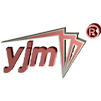Bonded Seals and Their Applications in Industrial Sealing Solutions
Understanding Bonded Seals The Key to Optimal Sealing Solutions
In various industries, the integrity of seals is crucial for ensuring the safety and efficiency of mechanical systems. Among the broad spectrum of sealing solutions available, bonded seals have emerged as a popular choice. They provide significant advantages when it comes to preventing leakage and ensuring reliable performance in challenging environments.
What is a Bonded Seal?
A bonded seal, often referred to as a bonded washer or seal, is a specialized type of sealing solution that consists of a rubber or elastomeric ring bonded to a metal washer. This combination provides enhanced sealing properties, making bonded seals ideal for applications involving high pressures, temperatures, or aggressive fluids. The rubber element is responsible for providing the sealing function, while the metal component adds mechanical strength and enables the seal to be easily installed.
The Construction of Bonded Seals
The design of a bonded seal is fundamental to its performance. The elastomer used in the seal is typically made from materials such as nitrile, silicone, or fluorocarbon, depending on the specific requirements of the application. These materials are chosen for their excellent resistance to temperature fluctuations, chemicals, and oils. The metal washer is usually crafted from materials like steel or stainless steel, which provides durability and resistance to corrosion.
The bonding process is critical; it ensures that the rubber is securely attached to the metal, creating a single component that can withstand several types of stresses. Proper bonding minimizes the risk of delamination and ensures that the seal operates as intended under various conditions.
Advantages of Using Bonded Seals
1. Enhanced Sealing Performance The unique design of bonded seals provides a reliable barrier against contaminants and leakages. The elasticity of the rubber allows it to conform to irregularities in the mating surfaces, ensuring a tight seal that can accommodate thermal expansion or contraction.
2. Ease of Installation Bonded seals can be easily placed into designated grooves or spaces, simplifying the installation process. They eliminate the need for additional sealing compounds, which can be messy and time-consuming to apply.
bonded seal 1 2

3. Durability The combination of elastomer and metal results in a highly resilient product that can withstand extreme pressures and temperatures. In hostile environments, where traditional seals may fail, bonded seals offer superior reliability.
4. Versatility Bonded seals can be used across various applications, including automotive, aerospace, hydraulics, and machinery. Their adaptability makes them suitable for both static and dynamic sealing applications, where movements and vibrations might pose a challenge for standard seals.
5. Cost-Effectiveness While the initial cost of bonded seals may be slightly higher than traditional gasket seals, their long life and reliability often lead to lower maintenance costs and reduced downtime. This can result in significant savings in the long run.
Applications of Bonded Seals
The applications for bonded seals are vast and varied. In the automotive industry, they are commonly used in engines, gearboxes, and hydraulic systems to prevent fluid leaks, thereby enhancing performance and safety. In aerospace, bonded seals play a crucial role in preventing fuel leaks and keeping systems tightly sealed during operation.
In industrial settings, bonded seals are essential for the functioning of pumps, valves, and pressure vessels. Their ability to perform under pressure and extreme conditions is integral to maintaining operational integrity across various machinery.
Conclusion
Bonded seals represent a significant advancement in sealing technology, offering a reliable and efficient solution to leakage challenges faced by many industries. With their unique construction, ease of installation, and impressive durability, they serve as an essential component in ensuring the effective operation of numerous mechanical systems. As industries continue to innovate, the use and development of bonded seals will undoubtedly play a crucial role in achieving enhanced performance and reliability in modern engineering applications.
Whether you are considering bonded seals for a specific application or exploring various sealing options, understanding their properties and advantages will help you make informed decisions that can lead to improved efficiency and effectiveness in your projects.
-
Understanding Automotive Oil Seals: Essential Components for Engine and Shaft Protection
News Jul.30,2025
-
The Importance of Heavy Duty Seals in Industrial and Residential Applications
News Jul.30,2025
-
Exploring Industrial Oil Seals: From Felt Oil Seals to TTO and CFW Solutions
News Jul.30,2025
-
Essential Guide to Oil Seals: From Radial to Metal-Cased Seals for Industrial Reliability
News Jul.30,2025
-
Choosing the Right Oil Seals and Gaskets for Industrial and Automotive Applications
News Jul.30,2025
-
Cassette Seals: Durable Sealing Solutions for Harsh Environments
News Jul.30,2025
-
Understanding the Front Main Engine Seal: Purpose, Maintenance, and Installation
News Jul.29,2025
Products categories















